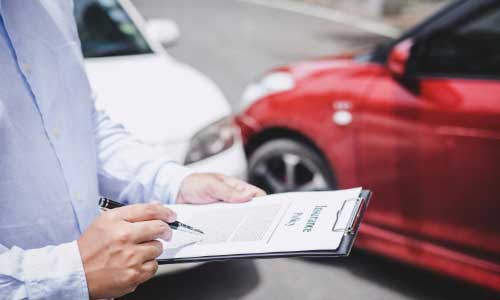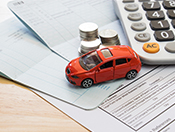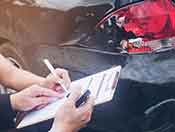800 800 001
Best Car Insurance in UAE
Some of the best and the cheapest car insurance quotes in Dubai are:
Whether you are learning how to drive for the first time or have a long time experience, the following tips and tricks for safe driving might help you in navigating the road ahead.
1. Steadily holding the Wheel
Smooth steering helps you in keeping control of your car. While taking turns or keeping your car straight when driving down the road, it is essential to have a steady hold on your steering wheel.
2. Accelerating Slowly
It could be tempting to slam your foot on the gas pedal hard as soon as the traffic light goes green. However, it is essential to practice self-control. The engine of the car performs better when it reaches higher speeds with ease. You can go from being completely stationary to slow rolling and then gradually increasing pressure on your gas pedal.

3. Maintaining a Safe Driving Speed
When you start becoming more comfortable with your driving, you can be tempted to push the boundaries of the speed limits. But it is not only a matter of traffic rules and laws to adhere to the speed limit, it is also important for your safety and of those around you.
For determining the speed limit, the central traffic authorities send the engineers to do a proper investigation. All these engineers take into consideration the accident history, road type, sight distance, and traffic volume. Your life and that of the others are not worthy of shaving some time off your driving time.
4. Buying Car Insurance Online
Whether a new driver or an experienced one, it is mandatory by law to have a car insurance plan to be able to drive on the streets of the UAE. You can easily buy a motor insurance policy online by visiting the official website of the insurer or through a web aggregator.
5. Don’t Slam the Brake Pedal
Just like the case of accelerating, it is necessary to avoid slamming the brake pedal to the car floor. Learning to understand when you should stop your car is amongst the most essential lessons an amateur teen driver could learn. In case you see the light in front of you turn yellow or a stop sign, start applying pressure to your brake gently as soon as you can. Put steady and gentle brake to the brake pedal till the time the car rolls to stop completely.

6. Stay Aware of all the Signs on the Road
Developing a complete understanding of all the road signs, pavement markings, and safety signals. Do not ignore the safety signal or road sign just because you are feeling confident in your abilities to drive. There is a reason for which the signs were posted.
7. Maintain a Reasonable Distance
It is important to keep a sufficient amount of distance or “cushion” between you and the vehicle in front of you irrespective of your driving experience. However, being a first-time or a new driver, the reaction time can be inherently slower as opposed to other experienced drivers.
Keeping the “2-second rule” in mind will prevent you from rear-ending the vehicle that is in front of you and facing expensive repairs and higher insurance premiums.
8. Communicating Properly
When it comes to safe driving, the blinker is an essential part. When your turning signal is correctly used, it will be able to communicate the decisions and the future moves to the other drivers. Make use of your horn sparingly and just as a warning for the other drivers.
Stay aware and alert of the behavior of your fellow drivers so that you are prepared for reacting in the event of an emergency. Keep checking the mirrors frequently and always keep looking over your shoulder before you change the lanes or back up.
9. Carefully Selecting the Lane
Get familiar with every lane’s purpose and give yourself sufficient room to make lanes changes or turns. In case you know an exit or turn is coming up, move into the concerned lane sufficiently early to prevent cutting off the other drivers on the road. While traveling at a consistent speed for long distances, the safest option is the center lane.
10. Checking the Status of your Car
Before even having a thought about taking your car out for a drive, check its state. Learn about the car you wish to drive including the safety belt functionality, speed limits, brake functions, front airbags, temperatures and pressure of the tires, different mirrors and their state, electronic stability control, GPS, to name a few. It is wise to drive the car, which does not have missing parts, and even better, the one, which is covered by any of the insurance companies.
11. Follow all the Traffic Laws
Whether someone is watching you or not, or if there is no vehicle to compete with you on the lane, make sure you observe the traffic rules, including the speed limits and the stop signs. Although the rules may feel to be restrictive, they will go a long way to ensure the safety of all the other drivers on the road.
The Bottom Line!
There absolutely is a thrill, which comes with becoming a new driver. The simple thought of going on road trips with friends and you are being the driver can be exciting. However, simply passing your driving test does not make you a pro driver. Hitting the streets for the first is a risk in itself, not only for you but also for the other drivers present on the road.
It can be intimidating to learn to drive, but with sufficient practice and proper awareness, it could be a fun and safe experience. Here are some of the most important safety tips for new teen drivers.
More From Car Insurance
- Recent Articles
- Popular Articles
























